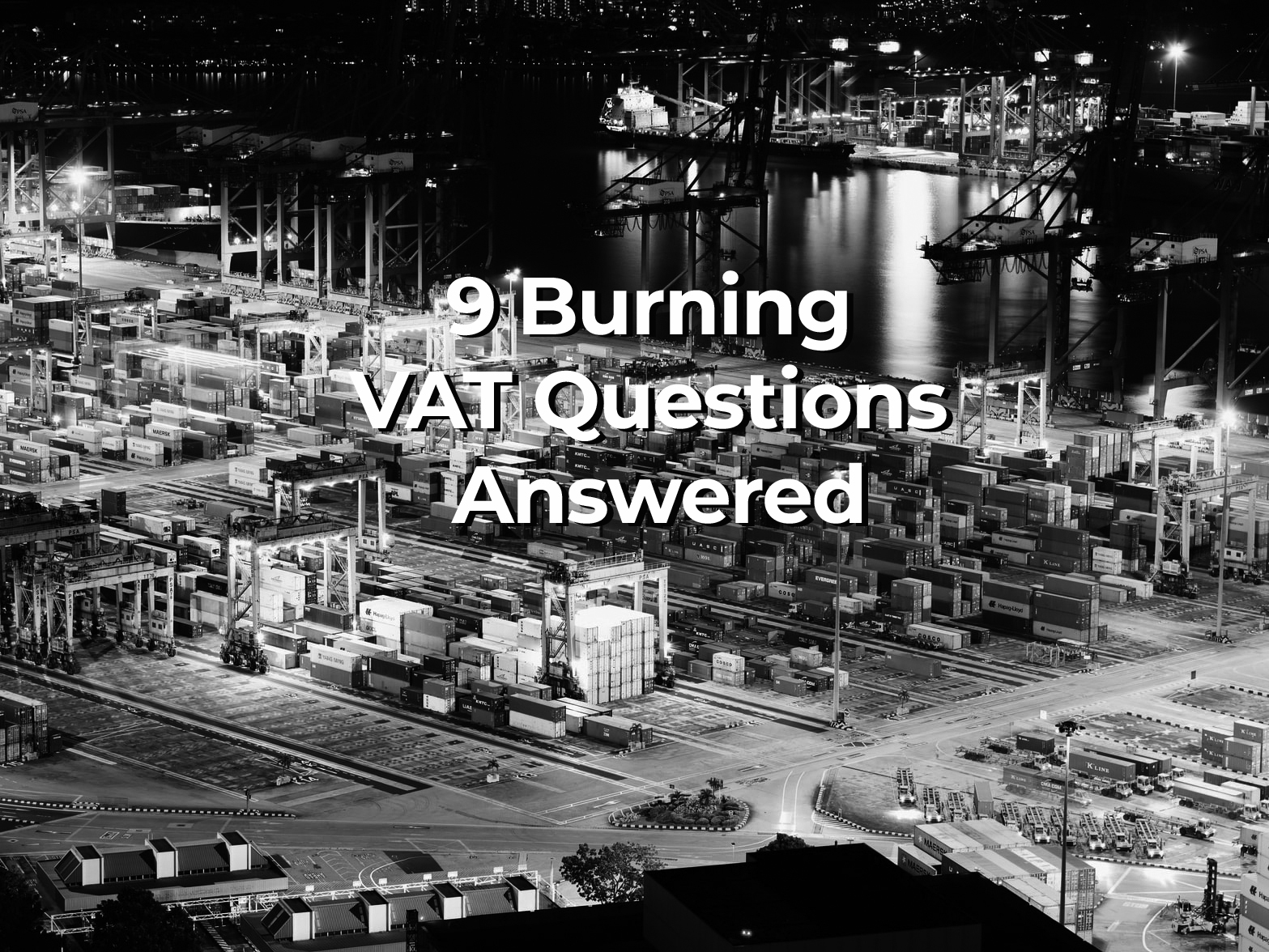
Starting in January with the UK’s exit from the European Union and with the launch of brand-new VAT legislation in the summer, 2021 has been a busy year for those selling goods cross-border.
Similar to the introduction of the 2019/1020 (‘The Market Surveillance Regulation’), much of this new legislation is designed to enforce more accountability and liability in the sale of goods online. The EU Ecommerce VAT Package has been introduced by the EU in the fight against VAT fraud and the UK has taken similar measures since its exit from the EU.
To help sellers navigate these complicated changes, here are some of the most frequently asked questions when it comes to the EU Ecommerce VAT Package and Brexit:
What is IOSS?
IOSS, or the Import One Stop Shop, is a new VAT registration launched in July 2021. This online portal offers sellers the opportunity to obtain a single VAT registration for all their imported distance sales of goods to private customers in the EU in consignments below EUR 150. Through IOSS, the seller can collect VAT at the point of sale and account for all the VAT due on these distance sales in one monthly filing, to one tax authority. There will be no duties due when importing your goods under the IOSS scheme and using your IOSS number will allow for fast release through customs.
What happened to Low Value Consignment Relief?
Low Value Consignment Relief (LVCR) has been abolished by the European Union as of 01 July 2021. Where goods valued under EUR 22 could once be imported without VAT due, now all imported goods are subject to VAT regardless of their value.
The UK has also removed any LVCR, replacing it with a blanket approach to imported goods. All goods imported into the UK under the value of GBP 135 are now subject to UK Supply VAT from the point of sale. If you sell goods under £135 on your own website to customers in the UK, you may need to register for VAT right away to account for VAT on your sales.
What is an IOSS Intermediary?
If you are established outside of the EU and wish to register for IOSS (the Import One Stop Shop), you will need to appoint an IOSS Intermediary. Just as you may need an Authorized Representative to act on your behalf as the economic operator for your goods, you may also need an IOSS Intermediary to share in the liability of your VAT obligations. An IOSS Intermediary will be established in the EU and can get you IOSS registered, acting on your behalf with the EU Tax Authorities.
What if my consignments are valued above EUR 150?
If you are importing consignments into the EU valued above EUR 150, you will not be eligible for IOSS and instead will need to appoint an Importer of Record. An Importer of Record is responsible for remitting the import VAT in the country of importation. They may also wish to be VAT registered in the country of importation so that they can recoup that import VAT on their periodic VAT return.
You can choose whether you or your customer will be the Importer of Record. If you choose the customer, please be aware that your goods may be refused at importation if the customer does not agree to pay the additional taxes and this is likely to create a poor customer experience.
How do I work out the value of a consignment?
To calculate the intrinsic value of the goods, you do not include taxes, shipping or insurance costs. However, when you calculate the VAT owed on the sale by the consumer, you do include shipping and insurance as well as the value of the goods themselves.
Do I need an EORI number?
If you are the Importer of Record, you will also require an EU EORI (Economic Operator Registration Identification Number). This identifies you as the importer to the EU customs authorities. Since the UK left the EU, you will require both a UK and EU EORI number if you are acting as the Importer of Record when importing into either.
Is the marketplace I use responsible for the VAT collection?
The introduction of the EU Ecommerce VAT Package has created several scenarios where marketplaces are deemed the seller of the goods and, therefore, are liable for VAT. This is another effort made by the EU to crackdown on VAT fraud – especially in online selling.
- When selling on a marketplace, if your goods are located outside of the EU at the point of sale and the goods have a consignment value of less than EUR 150 (EU imports) or £135 (UK imports), the marketplace is responsible for the VAT owed on those sales.
- If your business is established outside of the EU but your goods are already imported and are located in the EU at the point of sale, you must register for VAT in the countries where your goods are stored. However, for intra-EU sales of these goods, the marketplace is responsible for the collection of VAT. You must declare the sales of goods to the marketplace on your VAT return.
- If you are established in the EU and your goods are located in the EU at the point of sale, you must register for VAT in the countries where your goods are held and you are also liable for the VAT due on any intra-EU sales. This VAT can be accounted for by using OSS (the One Stop Shop) or by registering locally for VAT where your customers are.
The UK has implemented similar legislation in its fight against VAT fraud. Marketplaces are liable for the VAT due on sales to UK customers when the goods are stored outside of the UK at the point of sale and are in consignments valued below GBP 135.
What is OSS?
For sellers making intra-EU sales to several different EU Member States, OSS (the One Stop Shop) simplifies the VAT compliance process. Many of you may be familiar with the Distance Selling Thresholds which dictated that, after selling a certain amount of goods into an EU Member State where you were not established, a VAT registration was required. In the EU, this has been abolished and has been replaced with OSS. OSS is another online portal which allows online sellers to obtain a single VAT registration and use this to account for the VAT owed on cross-border sales between EU member states in a single quarterly filing.
What if I sell on my own website?
If you are not using a marketplace to facilitate the sale of your goods, your VAT liability may be affected:
- If your goods are held in the EU at the point of sale, you can choose to register in the country where your goods are held. You will also need an OSS registration to account for the VAT owed on any goods sold to other EU Member States or VAT registration in each country where your customers are based.
- If your goods are outside the EU at the point of sale, you can choose to IOSS register for consignments valued below EUR 150 or register as an Importer of Record for consignments valued above EUR 150.
- If you are selling goods directly to UK customers from outside of the UK, in consignments below GBP 135, you will need a UK VAT registration. If you are holding goods in the UK and are not established there, you will also need UK VAT registration.
SimplyVAT.com is an experienced team of international VAT experts specialized in online selling. For more useful resources when navigating the challenging landscape of VAT, please take a look at our Brexit Resources or our EU VAT Changes Hub.


